Broadway Bill

Brief Synopsis
Cast & Crew
Frank Capra
Warner Baxter
Myrna Loy
Walter Connolly
Helen Vinson
Douglas Dumbrille
Film Details
Technical Specs

Synopsis
Businessman J. L. Higgins, president of the Higgins National Bank in Higginsville, announces a board of directors' dinner meeting for his four daughters and three sons-in-law, each of whom presides over one of Higgins' subsidiaries. All are reached quickly except for Dan Brooks, who is attending to his thoroughbred, "Broadway Bill," with the help of Alice, J. L.'s unwed daughter. Dan hates running his father-in-law's paper box factory, and is urged by Alice and stablehand Whitey to devote himself to racing Bill. While preparing for dinner that night, Dan's wife Margaret refuses to sympathize with Dan's misery over his job or share his excitement for his first love, horseracing. She informs him that he could someday own the vast Higgins financial empire, and they then attend the dinner, during which J. L. informs his family of his acquisition that morning of the Acme Lumber Co. He says that its presidency will be left vacant until Alice's future husband takes the post, but free-willed Alice insists she would never marry a man who would walk into such a job. Following dinner, J. L. reports that sales are dangerously off in Dan's paper box division due to his inattention to work. When J. L. orders Dan to sell Broadway Bill and return full time to the office, Dan quits instead and leaves Higginsville without Margaret, who refuses to go with him. Alice cries in happiness for Dan's "escape," while also hiding her attraction to him. At the Imperial Race Track, Dan rejoins his friends as he enters Broadway Bill in the $25,000 Imperial Derby, which is to be held in two weeks. Dan scrapes together the entry fee, then sets about finding the five hundred dollar nominating fee. He convinces Pop Jones to give him feed and shelter on credit, but is unable to get money from his old friend Colonel Pettigrew, who is also penniless. At a preliminary race the next day, Bill is disqualified when he bolts the starting gate. Dan writes to Margaret, asking her to send Bill's friend "Skeeter," a pet rooster, but it is Alice who delivers Skeeter. Alice stays to help, despite the protests of Dan, who is unaware of her feelings for him, and also that Margaret expects him to return home to apologize. Alice's presence proves fortunate when Bill gets a serious cold from being soaked by rain pouring through the leaky barn. She nurses Bill back to health, then pawns her fur coat and jewelry to raise money when Whitey is discovered to be using loaded dice while shooting craps to raise the nominating fee. On the eve of the derby, Pop Jones, angry that he has not been paid, has Bill seized and Dan thrown in jail. When a two-dollar bet placed on Bill by J. P. Chase, a bored, bedridden millionaire, is misinterpreted as a $200,000 bet, bookmaker Eddie Morgan, who is backing "Sun Up," is pleased because the odds on his horse go up as Bill's decline. To prevent Bill from being scratched, Eddie bails Dan out and pays his bills. Meanwhile, Eddie has bribed Ted Williams, Bill's jockey, and the jockey riding favorite "Gallant Lady," to throw the race. Eddie's plan is partially crippled, however, when Gallant Lady's jockey is suspended. On the day of the race, Williams reigns Bill in, but Bill ignores his instructions and sprints to victory, only to collapse and die of a burst heart. The following day, Bill is buried at the track, after which J. L. takes Alice home, and Dan leaves with Whitey. Two years pass and J. L. calls another dinner meeting. He announces that since Dan and Margaret's divorce, he has sold his subsidiaries, and that the bank will be next. He hopes his remaining sons-in-law will become independent men, not spineless parasites. Just then, a honking car horn and a shattered window announce Dan's demand that J. L. "release the Princess (Alice) from the dark tower." She runs to join Dan, Whitey and their two new horses, "Broadway Bill II" and "Princess." J. L. then leaves behind his shocked family and escapes with Alice.

Director

Frank Capra
Cast

Warner Baxter

Myrna Loy

Walter Connolly

Helen Vinson

Douglas Dumbrille

Raymond Walburn
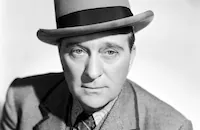
Lynne Overman
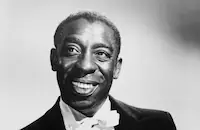
Clarence Muse

Margaret Hamilton

Frankie Darro
George Cooper

George Meeker
Edward Tucker
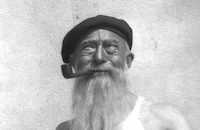
Edmund Breese
Broadway Bill
Helen Flint
Helene Millard
Harry Holman

Charles Levinson

Ward Bond
Harry Todd
Charles C. Wilson

Paul Harvey

Claude Gillingwater Sr.
Inez Courtney

Lucille Ball
Clara Blandick

Alan Hale
Bob Tansill
Robert Allen
Dick Sumner
Frank O'connor
James Blakely
Forrester Harvey
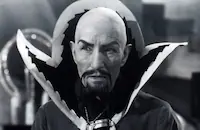
Charles B. Middleton
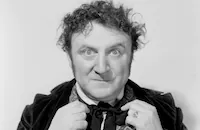
Herman Bing

Eddie Kane

Irving Bacon
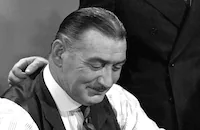
Edward Keane
Tom Ricketts
Harrison Greene
A. R. Haysel
Sam Flint
Pat Moriarity

Joan Standing
Frank Yaconelli
Ky Robinson
Frank Holliday
Christian Frank
William H. Strauss
Spec O'donnell
Fred Walton
Sidney Bracy
Alfred James
Gladys Gale
Ara Haswell
Betty May
Helene Caverly
Rita Ross
Irene Coleman
Ila Lee
P. H. Levy
Stanley Blystone
Kit Guard
John Ince
Henry Barrows
Otto Fries

Bess Flowers
Ernie Adams
Bruce Galbraith
Kernan Cripps
Stanley Mack
Charles Brinley
Jack Mulhall
Richard Heming
Arthur Rankin
Patricia Caron
Harry C. Bradley
Eddy Chandler
Louis Natheaux
Pat O'malley
Sydney De Grey
Edmund Burns

Bud Flanagan
Babe Lawrence
Harry Dunkinson
Gino Corrado
Philo Mccollough
Mert La Varr
John Webb Dillion
Dick Kipling
Bert Morehouse
Reginald Simpson
Matty Roubert
Eddie Sturgis
Harry Keaton
Marvin Loback
Kay Mccoy
Bert Starkey
Kay Sherris
Phyllis Crane
Bill Irving
Eris Norman
Joe Bordeaux
Dixie Russell
Bobby Dunn
Janet Harper
Herbert Ashley
Alice Lake
Dick Pritchard
Evelyn Pierce
Dutch Hendrian
Elinor Fair
Brooks Benedict
Edith Craig
Frank Mills
Beatrice Curtis
Jack Kenny
Anita Pike
Don Roberts
Ethel Sykes
Larry Mcgrath
Catherine Wallace
Tom Costello
Maurine Gray
Bond Davis
Lillian West
Dick Gordon
Peggy Leon
Lee Willard
Ruth Hiatt
Bob Ryan
Janet Eastman
Gunnis Davis
Ruth Milo
Tony Martelli
Blanche Churchill
Gene Mckay
Symona Boniface
Sammy Blum
Margaret Morgan
Harry Hume
Sue Stevens
Herman Marks
Anna Chandler
Paul Irving
Violet Carlton
George Morrell
Adelyn Hall
Ethel Bryant
Billee Van Every
Crew
Jack Andersen
Edward Bernds
Samuel J. Briskin
Sidney Buchman
Frank Capra
Harry Cohn
C. C. Coleman
Marty Crail
Ray Davidson
James Goss
Gene Havlick
Mark Hellinger
Melrose Hooper
George Kelly
Walter Lackey
Irving Lippman
Joe Lynch
Frank Mcgrath
Robert Riskin
Vic Scheurich
Joseph Walker

Film Details
Technical Specs

Articles
Broadway Bill
In an interview shortly before filming began, Capra expressed frustration with the production of the film, "We have one advantage at this studio [Columbia Pictures]. We take time to select a story; one we can get hepped up over. We don't have to write it to fit star personalities; Columbia hasn't enough of them for that, anyway. It's the story, the treatment that counts. Then we go out and get the players to fit. We're two months late in starting Broadway Bill - that's our next right now. The people we want, most of them, are under contract to other studios. So far, we've got Warner Baxter for the lead." According to cinematographer Joseph Walker, Capra tried to get Clark Gable for the part of Dan Brooks (having just directed him in It Happened One Night [1934]) but settled on Baxter. For the two female leads, Capra got Myrna Loy and Helen Vinson, playing sisters. In supporting roles, Louis Calhern was replaced with Douglas Dumbrille before shooting began, Sidney Skolsky, who would later become a famous columnist, was replaced in the small role as a jockey, and twenty-three year old Lucille Ball had a brief part as a blonde telephone operator. According to Kathleen Brady in her biography of Ball, she would "forge lifetime bonds with some of her fellow bit players in Broadway Bill, including Charles Lane, who played a crook, and Irving Bacon, who played a hot dog stand owner. Both actors later appeared regularly on I Love Lucy." Later, when asked about his seeming gift for propelling his actors to stardom he said, "I believe that actors, if they're given a little aid and a little leeway, get along much better than they are normally supposed to. The trick is to get that best scene from that actor at the right time, so that it can go onto the screen, even if it's just twenty seconds but that twenty seconds that that actor works must be his top. Now, if you can skim the top from that actor's performance, and you have him give the top performance on every scene, and never let him down below his top that he's able to give, you'll get a fine performance. If his scenes go up and down, from top to medium to below standard (for his capability), you have an uneven performance. The trick of a director is to get only the peaks."
Actor-writer-composer Clarence Muse, playing Whitey, was a graduate of the Dickinson School of Law in Pennsylvania. As an African-American actor in 1930s Hollywood, he was required to play broad characters, but Muse always injected restraint into his roles and was a favorite of Frank Capra. According to Donald Bogle in his book Toms, Coons, Mulattoes, Mammies, and Bucks: An Interpretive History of Blacks in American Films, "Muse had previously worked for Capra in Rain or Shine [1930] and Dirigible [1931], and the director, who affectionately called Muse his "pet actor," handled him sensitively. Cast opposite Caucasian actor Warner Baxter, Muse again played the amiable alter ego. The film is about a race horse, Broadway Bill, that Baxter and Muse hope to enter in the Kentucky Derby. Both are short on cash, and when Baxter discovers Muse's savings in the latter's boots, he uses the money of his black friend who is called Whitey for the racing enterprise. Throughout the film the two men are true compatriots. They sleep under the same roof. They share whatever food they can get. Still Muse's role called for much tommery and even some racking instances of Jim Crowism. In one scene, the film's producers upheld their self-imposed color bar by having Muse eat his food standing while Baxter remained seated. It would have been unheard of to have a black and white sit at the same table. Yet again, Muse managed to strike at consciences through the depth of his own personality. Even the manner in which he walked with head lifted, body erect, eyes straight ahead indicated a self-respect and black self-awareness that other actors of the period lacked."
Broadway Bill was shot on a tight schedule between June 18 August 16, 1934 at the Columbia Studios in Hollywood and on location at Tanforan Race Track in San Bruno, California, the Warner Ranch, and the Pacific Coast Steel Mills. It previewed on October 24, 1932, went into reedits based upon audience reaction, then previewed again on November 24th. The film went into general release on November 30, 1934.
Andre Sennwald in The New York Times hailed the film and Frank Capra, "Out of the sentimental simplicities of Mark Hellinger's story, Mr. Capra manufactures the kind of entertainment which pleases the thin-nosed sophisticate as well as the ribbon-counter empress and the affrighted defender of the public morale. So skillfully does he wield his gently satirical cameras that, if you are not aware of the portentous matters he is spoofing, you are still under the impression that the screen is providing an uncommonly pleasant experience. For Mr. Capra owns a rare gift for cinema. It is a fortunate coincidence that he bestows it for the greatest good of the greatest number....The players who work for Mr. Capra have a habit of performing at the top of their talent. Mr. Baxter is enormously agreeable as the Dan Brooks who fights his way out of the cubby hole where life and circumstance have conspired to imprison him. As his sympathetic assistant, the Princess, Myrna Loy reaffirms our faith in her, both as a light comedienne and as a person. Then there are Walter Connolly as the omnipotent oom of the Higgins enterprises, Clarence Muse as the diverting stable-boy, Lynne Overman as the skeptical racetrack tout, Raymond Walburn as the strictly phoney gentleman who calls himself Colonel Pettigrew, and the charming Helen Vinson as Dan's chill and conservative wife. Broadway Bill is passed without reservations and Mr. Capra is recommended for a furlough with pay."
Unfortunately for Capra, the hectic schedule of making film after film, an infection from a burst appendix, and the birth of a deaf and possibly autistic son caused him to suffer a nervous breakdown after the completion of Broadway Bill which required a lengthy recovery in a hospital. He did eventually go on to make some of the best films of the 1930s and 1940s including Mr. Smith Goes to Washington [1939] and It's a Wonderful Life [1946]. He would later remake Broadway Bill for Paramount as Riding High [1950] with Bing Crosby and Coleen Gray. Reprising their roles from the original film were Clarence Muse, Douglas Dumbrille, Margaret Hamilton, Frankie Darro, Ward Bond, Raymond Walburn, and Irving Bacon. Clarence Muse's final film would be another horse epic, The Black Stallion [1979], the same year he died one day short of his 90th birthday.
Broadway Bill had been considered a "lost" film, having been held from distribution because Paramount (who had bought the rights to the film) did not want it to conflict with Riding High. The film eventually resurfaced in the 1990s. Michael Schlesinger, manager of Paramount's Theatrical Repertory Sales said, in an interview in the Los Angeles Times, "Obviously, we (Paramount) would have liked to have re-released it when Capra was alive, but there were underlying story rights, musical rights, all kinds of rights that had to be cleared. Then there was the problem of the negative. The only fine-grain 35-millimeter in existence was at the Library of Congress," Like It Happened One Night, Broadway Bill was missing scenes from the original film. The 1934 running time of the film was 125 minutes. The rediscovered version now runs 104 minutes, leaving scholars to wonder what gems have been lost.
Producer: Frank Capra, Harry Cohn (uncredited)
Director: Frank Capra
Screenplay: Robert Riskin; Mark Hellinger (story); Sidney Buchman (uncredited)
Cinematography: Joseph Walker
Art Direction: Jerome Pycha Jr. (uncredited)
Music: Mischa Bakaleinikoff, Howard Jackson, Louis Silvers (all uncredited)
Film Editing: Gene Havlick
Cast: Warner Baxter (Dan Brooks), Myrna Loy (The Princess), Walter Connolly (J.L. Higgins), Helen Vinson (Margaret), Douglas Dumbrille (Eddie Morgan), Raymond Walburn (Colonel Pettigrew), Lynne Overman (Happy McGuire), Clarence Muse (Whitey), Broadway Bill (Himself), Margaret Hamilton (Edna), Frankie Darro (Ted Williams).
BW-102m.
by Lorraine LoBianco
SOURCES:
Toms, Coons, Mulattoes, Mammies, and Bucks: An Interpretive History of Blacks in American Films by Donald Bogle
The American Film Institute Catalog by Alan Gevinson
The Internet Movie Database
Broadway Bill: a New Comedy Directed by Frank Capra, at the Radio City Music Hall by Andre Sennwald, The New York Times , November 30, 1934.
The All-Movie Guide by Hal Erickson
Off-Centerpiece Movies Capra's "Broadway Bill" Finally Gets Untracked by Jane Galbraith. The Los Angeles Times , April 19, 1992.
Frank Capra Interviews by Frank Capra and Leland A. Poague
Lucille: The Life of Lucille Ball by Kathleen Brady

Broadway Bill
Quotes
Doesn't anything ever change in this mausoleum?- Dan Brooks
Yes. Bedspreads and underwear.- Alice Higgins
Trivia
Notes
According to the Screen Achievements Bulletin, Mark Hellinger's story was entitled "On the Nose." A Hollywood Reporter news item, however, gives the name of the story as "Strictly Confidential." No publication information for Hellinger's story has been found. According to Hollywood Reporter news items, Louis Calhern was briefly assigned to the part played by Douglas Dumbrille, Sidney Skolsky was set to play a jockey, and Frank Capra sought to borrow Lewis Stone from M-G-M for an unspecified role. Contemporary sources also state that Osgood Perkins, Sterling Holloway, Samuel S. Hinds, Barbara Read and Mary McGrath were included in the cast, but their participation in the final film has not been verified. Location shooting was done at Tanforan Racetrack, which was located in San Mateo County, the Warner Ranch in Calabasas, CA and Pacific Coast Steel Mills. According to contemporary sources, the film was 125 minutes long when it was previewed on October 24, 1934. Film Daily states that another preview was held on November 21, 1934. In his autobiography, photographer Joseph Walker states that Capra originally tried to get Clark Gable for the part of Dan Brooks, but he was not available. On April 24, 1939, Robert Taylor performed in a radio verson of Broadway Bill for Lux Radio Theater.
Modern sources list the following additional crew members: Microphone operator Irving Libbott; Electrial Bob Charlesworth; Props George Rhein; Gaffer George Hager; Best Boy Al Later; and Head grip Jimmy Lloyd. Modern sources also include Harry Semels (Conductor) in the cast, and complete the character identifications for Harry C. Bradley (Bookkeeper) and Eddy Chandler (Onlooker). This film is not a remake of a 1918 Yorke film, also entitled Broadway Bill. Broadway Bill was remade by Capra as Riding High, a 1950 release starring Bing Crosby and Colleen Grey. Capra states in his autobiography that he traded the script for A Woman of Distinction for the rights to Broadway Bill and its negative. He made the film for Paramount, and in order to save money, cut in approximately twenty minutes of racing and dialogue footage from the original film. Among the actors reprising their original roles were Clarence Muse, Douglas Dumbrille, Margaret Hamilton, Frankie Darro, Ward Bond, Raymond Walburn, and Irving Bacon.

Miscellaneous Notes
Released in United States April 1981
Released in United States December 1934
Released in United States July 1984
Released in United States May 2001
Released in United States on Video September 21, 1994
Re-released in United States June 4, 1992
Re-released in United States May 1, 1992
Shown at Cannes International Film Festival (Retrospective) May 9-20, 2001.
reels 11
Released in United States April 1981 (Shown at FILMEX: Los Angeles International Film Exposition (Treasures from AFI) April 2-23, 1981.)
Released in United States May 2001 (Shown at Cannes International Film Festival (Retrospective) May 9-20, 2001.)
Re-released in United States May 1, 1992 (New York City)
Re-released in United States June 4, 1992 (Los Angeles)
Released in United States July 1984 (Shown at FILMEX: Los Angeles International Film Exposition (50 Hour Sports Movie Marathon) July 5-20, 1984.)
Released in United States on Video September 21, 1994
Released in United States December 1934














